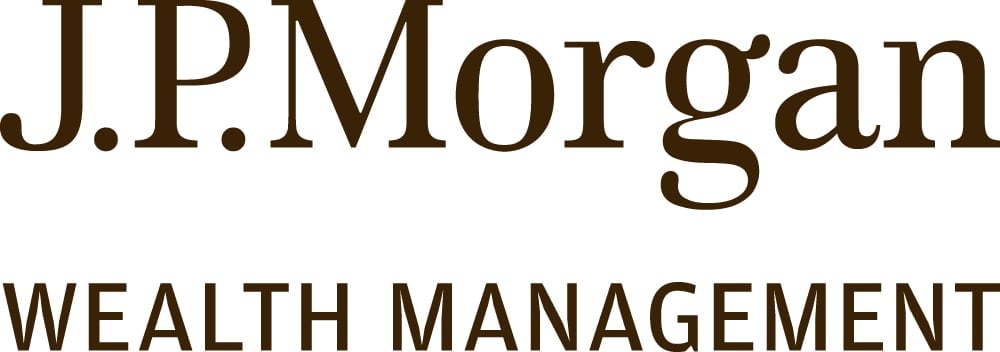These 5 Brokers Are Paying More Than 4% on Uninvested Cash

Many or all of the products featured here are from our partners who compensate us. This influences which products we write about and where and how the product appears on a page. However, this does not influence our evaluations. Our opinions are our own. Here is a list of our partners and here's how we make money.
The investing information provided on this page is for educational purposes only. NerdWallet, Inc. does not offer advisory or brokerage services, nor does it recommend or advise investors to buy or sell particular stocks, securities or other investments.
Interest rates are hitting highs they haven’t reached since before the Great Recession — and the rapid rate rise over the last two years has shaken up financial markets.
But the news about high interest rates isn’t all bad for investors.
NerdWallet rating 4.9 /5 | NerdWallet rating 5.0 /5 | NerdWallet rating 4.1 /5 |
Fees $0 per online equity trade | Fees $0 per trade | Fees $0 per trade |
Account minimum $0 | Account minimum $0 | Account minimum $0 |
Promotion None no promotion available at this time | Promotion None no promotion available at this time | Promotion Get up to $700 when you open and fund a J.P. Morgan Self-Directed Investing account with qualifying new money. |
Why are interest rates so high?
The Federal Reserve has been raising interest rates — specifically the benchmark federal funds rate, which influences other interest rates — to tame inflation, which is still above its target range of 2%.
“Since early last year, we have raised our policy rate by 5 1/4 percentage points. We see the current stance of monetary policy as restrictive, putting downward pressure on economic activity, hiring and inflation,” Chair Jerome Powell said after the most recent Federal Reserve meeting.
“The process of getting inflation sustainably down to 2% has a long way to go,” Powell said, noting that it may not fall to that level until 2026.
The Federal Reserve’s latest Summary of Economic Projections (SEP) suggests that interest rates could remain elevated for some time, even as inflation cools down.
Each SEP includes a “dot plot” — a chart that surveys Federal Reserve officials for their opinions on the appropriate future level of the federal funds rate. According to the latest dot plot, the median respondent expects the federal funds rate to stay above 5% through 2024.
The federal funds rate influences many other interest rates throughout the economy — including the rates borrowers pay on mortgages and credit cards, and also the rates savers and investors earn on high-interest savings accounts and uninvested cash.
So on the one hand, the rapid rise in interest rates has made borrowing more expensive. But on the other hand, it has made saving more lucrative — especially in certain brokerage accounts.
5 brokers with high cash interest rates
All of the brokers in the list below offer at least 4% interest on uninvested cash by default — that is, without requiring investors to actively purchase a money market fund or open a separate savings account.
In other words, you can earn a return on cash deposited in these accounts, without needing to do any investing — just like a bank account.
The brokers marked with an asterisk attach conditions to their interest rates, such as offering different rates to different account tiers or requiring a minimum balance to earn interest. Interest rates are current as of Sept. 22, 2023.
Fidelity: 4.98%
At Fidelity, uninvested cash is automatically swept into the Fidelity Government Money Market Fund (SPAXX) by default, where it earns the interest rate paid by that fund until you’re ready to invest it or withdraw it.
Vanguard: 5.28%
It’s a similar situation at Vanguard — uninvested cash is automatically swept into the Vanguard Federal Money Market Fund (VMFXX) by default.
Webull: 5%
Webull’s cash management tool sweeps uninvested cash into interest-earning accounts at banks partnered with Webull. It accrues interest daily and pays it out monthly.
Interactive Brokers*: 3.83% or 4.83%, above $10,000
Interactive Brokers offers two different plans — IBKR Lite, which is virtually commission-free, and IBKR Pro, which charges commissions on trades but offers faster order execution.
Neither plan pays interest on balances below $10,000, but Lite pays 3.83% on the amount above $10,000, and Pro pays 4.83% on the amount above $10,000.
Robinhood*: 1.5% or 4.9%
Like Interactive Brokers, Robinhood offers two types of accounts: the regular account, which charges no monthly fees, and Robinhood Gold, which costs $5 per month.
There are no minimum balances to earn interest at Robinhood, but regular accounts pay 1.5% interest, while Gold accounts pay 4.9%. Like Webull, Robinhood sweeps uninvested cash into a network of interest-earning accounts at partner banks.
There are also some brokers, such as Ally Invest and M1 Finance, that allow brokerage customers to open a separate high-yield savings account and link it to their brokerage account. Like interest in a high-yield savings account, the interest you earn on uninvested cash in a brokerage account is taxable, unless it’s in a tax-advantaged account like an individual retirement account (IRA).
Brokerage accounts vs. bank accounts
There are a number of differences between brokerage accounts and typical savings accounts to be aware of, including deposit insurance and features.
Deposit insurance
Savings accounts are insured by the Federal Deposit Insurance Corp. (FDIC), which protects up to $250,000 per person, per bank.
All five brokerages above are members of the Securities Investor Protection Corp. (SIPC), which protects up to $500,000 per person (up to $250,000 in cash), per brokerage account in the event that the broker becomes insolvent.
However, SIPC coverage doesn't protect the value of money market funds, such as those that Fidelity and Vanguard sweep funds into by default. In other words, SIPC coverage doesn't necessarily cover the exact dollar amount of cash in a brokerage account the way FDIC coverage does in a savings account.
Is a brokerage account a good place to earn interest?
Bill Hampton, a financial consultant based in Atlanta, says that brokerage accounts can be good places to earn interest — for savers who don’t need immediate access to their money.
However, Hampton says that some brokerage accounts have limitations. “For instance, some do not offer the ability to write checks like a bank would. Some limit the amount of transactions you can make in a particular month,” Hampton says.
“A client would have to determine if it’s a long-term savings account that they’re not going to touch for six months or a year, or if it’s going to be an emergency fund that they don’t plan to utilize. If it’s going to be their regular account that they move cash in and out of, they may want to check with the restrictions that each brokerage firm has,” Hampton says.
He points out that many accounts are limited to six transactions per month, which is “plenty in most cases.”
Hampton says that despite these limitations, brokerage accounts can still be a viable option for savers who are seeking high yields and don’t need to touch their money several times a week.
“If individuals or clients can find better rates at a brokerage firm than at their local bank, which is most likely, then that’s a very good opportunity to earn a high interest rate,” he says.
The author held positions in VMFXX at the time of publication.
On a similar note...





